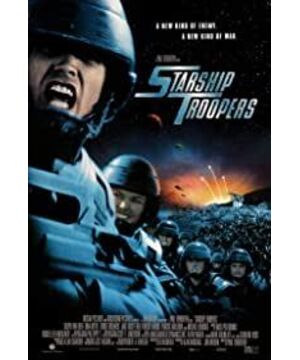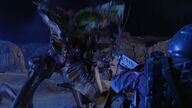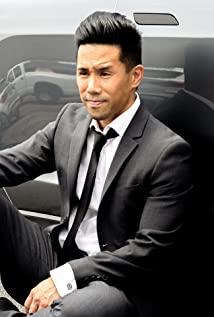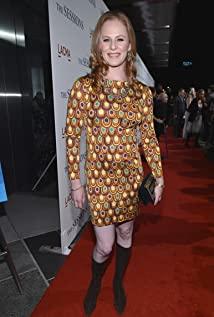The reason is that the author Robert A. Heinlein is Nerd among the military fans. Said he is a fan of the army because he has been in the army but has never been on the battlefield. He is said to be Nerd, because he is doing technology research and development in the army, and he also has his own set of Utopia theory.
The federal government of Starship Troopers is a hodgepodge of militarism + democratic elections + an ideal country without race and borders. Heinlein adopted the attitude of a cynic engineer and developed such an ideal country. Some readers said that he preached belligerence, but he stated that war is a must. Some readers say that he promotes fascism, but his government is quite democratic. Others said that he copied Sparta. He himself said that I like the Swiss system.
He has a point worth pondering: It is said that everyone is equal and everyone has the right to fight for freedom and happiness, but is this kind of right innate, or is it a nonsense in the constitution? If everyone wants to realize their rights, it will definitely be a fist and kick in the end. Human history has long given the answer.
So Heinlein's conclusion is: the right must be won by oneself. However, it is not possible to engage in civil and mutiny all day long, so the system must be formulated like this: Those who do not contribute to the Federation have no rights. The specific measures are: people who have not voluntarily performed military service have no right to vote. In the 1950s when the conscription system was popular, the idea of this voluntary military service system was really advanced.
Continuing to explain his ideals, Heinlein came up with more interesting ideas. For example, history classes can only be taught by veterans; they can’t perform military service to contribute to the motherland, and donate blood several times. This kind of proposal is natural in our country, and it’s definitely a finding in the West. People scolded.
After all, this is just wishful thinking of a nerd. The novel was published in the era when Eisenhower, a veteran of World War II, became president. At that time, the Cold War gradually escalated, and McCarthy was also happy to preach "draw the line", but in the end the United States did not pursue militarism, but chose Kennedy and the consortium behind him. The "Democratic Militarism" in Starship Troopers was put on the bookshelf and filed with Plato's Utopia.
The novel was published in the late 1950s, and many people scolded it back then. The most difficult criticism is that the author has not been on the real battlefield. He has no experience of the horror and coldness of war. Therefore, this technician who has not participated in the war is more in love with militarism than the veterans. Many veterans have written a lot of anti-war novels. The logic is similar to that of Everrett, the lawyer who spared no effort to defend Jochen Peiper.
When the time came to the 90s, director Paul Verhoeven decided to use the invincible mass media to make a real curse. No way, literary and art workers like to fight the war. So he recruited free culture people who are good at black humor and cynicism, and made this Starship Troopers movie.
Verhoeven knows how to educate the underprivileged people: At first glance, he puts all kinds of Nazi uniforms on the passionate young men who dedicated themselves to the Democratic and Military Federation in the film. My personal favorite military intelligence officer Carls Jenkins wears a black leather coat that is so handsome.
In addition, Verhoeven and the screenwriter used a very humanistic perspective to explain that this absurd military society is still possible, so the danger still exists. Political propaganda that does not exist all the time, a group of passionate youths, affectionate brothers and feet on the battlefield, and the magnificent formation of interstellar battleships, these entertainment factors are extremely dangerous temptations for every young person who is developing. Time is no longer in the 1950s, and there are no veterans to remind the public of the cruelty of war, but Verhoeven can use the flesh and blood on the screen to scare the enthusiastic stunners.
Naturally, I only saw love vs. the body, violence vs. courage, youth vs. death... A work that can see the benevolent sees the benevolent, the wise sees wisdom, is secretive and straightforward and aggressive, and it is really generous. what!
What kind of "elite" army is the hero's army in the original work? It's like a LAH poster. The play adapted it into an ordinary mechanized infantry, carrying a submachine gun to make insect feed. The change is good, the change is wonderful, the change is croaking! (Stroke the beard...)
But what makes people laugh is that although Heinlein is a nerd, although his ideal country is a bubble, he anticipates and proposes various specific strategies. Or less applied. The first is the voluntary military service system, which has already been set in the United States. The second is the high-tech development direction of mechanized infantry. The various technologies, equipment, and tactics in his novels will be seen in the individual equipment of American soldiers 50 years later. This novel itself is also one of the must-read books for the three major branches of the U.S. military. Later, the "landing" of his "space" paratroopers and the combat methods of "Mecha" equipment were so practical that James Cameron was very happy to apply it to his Aliens movie. The term for the famous "Bug Hunt" comes from here. I think that one day the US military will conquer the moon, and it will probably use such a strategy.
Look again, in the film, "I am the enemy or I", "The opponent is provoking first" and other pre-war advocacy and propaganda, in the past, the modern and the future have been repeated over and over again, and they have worked time and time again. Although the author Heinlein, like all nerds who try to establish an ideal country, hopes for young people with independent thinking ability, it turns out that wars and politics have always relied on unintelligible people. Human life is cheap, there is no way.
Oh, by the way, do you know who those Zergs are referring to in the original book? Huang Jiguang who went on to succeed. as follows:
It turns out that Heinlein really, really hated communism. He started the book right after the Korean War, and just by coincidence, the implacable, inhuman menace that the brave soldiers of the future have to fight is a horde of collectivist, expansionist insects. As if the symbolism wasn't obvious enough, he adds lines such as, "We were discovering, expensively, just how efficient a total communism can be when used by a people actually adapted to it by evolution. ... Perhaps we could have figured it out about the Bugs by noting the problems the Chinese Hegemony gave the Russo-Anglo-American Alliance."
View more about Starship Troopers reviews











